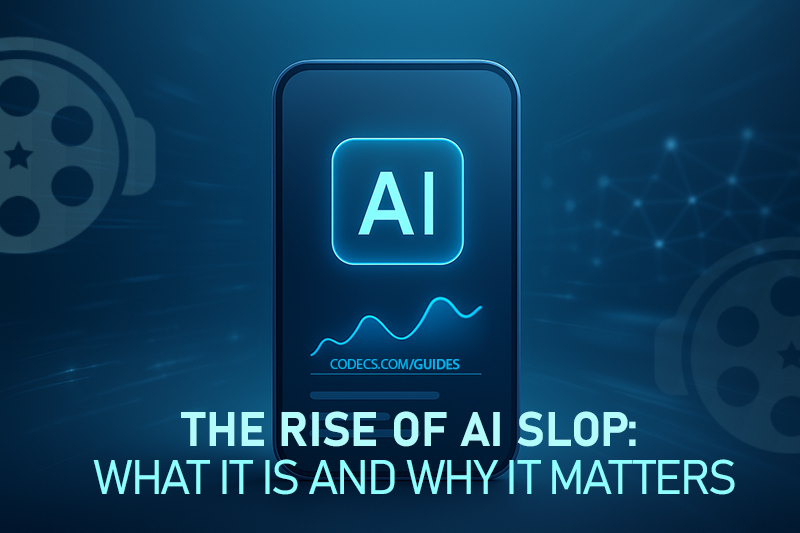As artificial intelligence becomes more common in everyday tools, from chatbots to content generators, a new term has started to appear: AI slop.
It’s not a technical phrase, but it’s a useful one. It describes the unpolished, low-quality, or unintended output produced by AI systems.
Think of it as the digital leftovers - content that wasn’t quite finished, accurate, or meaningful, but still ended up online.
Examples of AI Slop
AI slop can take many forms, such as:
-
Text that sounds repetitive, vague, or irrelevant.
-
AI-generated images that look distorted or contain strange details.
-
Videos or deepfakes with glitches or unnatural movements.
-
Content that’s clearly been produced in bulk for clicks, not clarity.
This kind of material often appears in social media posts, low-quality websites, spammy ads, or chatbot responses that don’t quite make sense.
Why Does It Happen?
AI models are designed to generate content quickly, based on patterns they’ve learned from large datasets.
While they often produce helpful or impressive results, they can also create content that lacks context, accuracy, or relevance - especially when the prompts are unclear or the model overreaches.
Because generating content with AI is so easy and fast, large volumes of this lower-quality output can flood online platforms before anyone filters or edits it.
Why It Matters
AI slop can affect the digital environment in a few key ways:
-
Information quality: It adds noise, making it harder to find trustworthy or useful content.
-
Training risks: If future AI systems are trained on slop, their performance can decline over time.
-
User experience: People may grow frustrated or misled by content that appears meaningful but isn’t.
What Can Be Done?
Awareness is the first step.
Platforms, developers, and users all play a role in recognizing and managing AI-generated content. Tools for moderation, better design of AI prompts, and thoughtful review processes can help reduce the spread of AI slop.












How to Download HEVC Video Extension for Free
Actually worked first try. Usually I have trouble following sites like these as the links are old and things ...
Read More →Don't Open .xmpeg Files Before Reading This
A downloaded torrent contained a large xmpeg file. In addition there was an mp4 video file which claimed you ...
Read More →Is my PC able to play H.265 / HEVC media file...
Thanks, bro! Very helpfull
Read More →